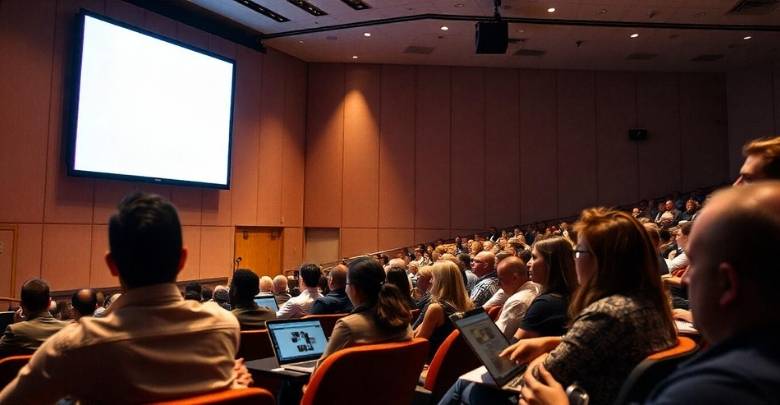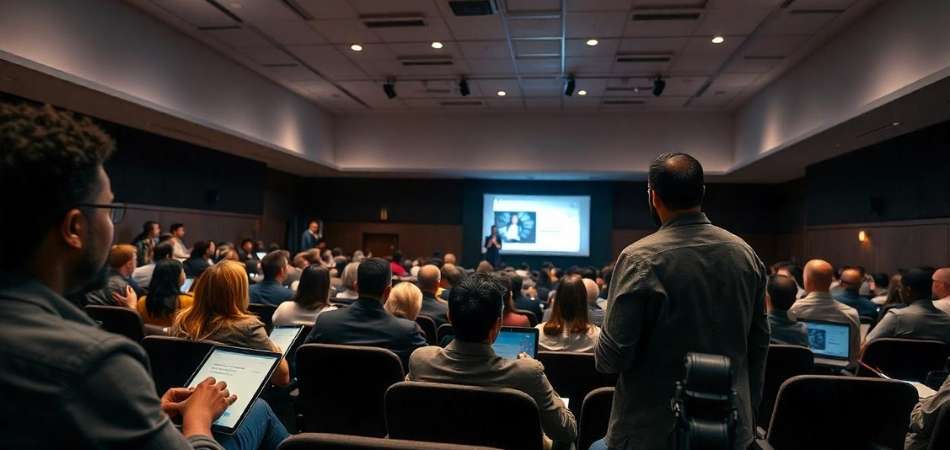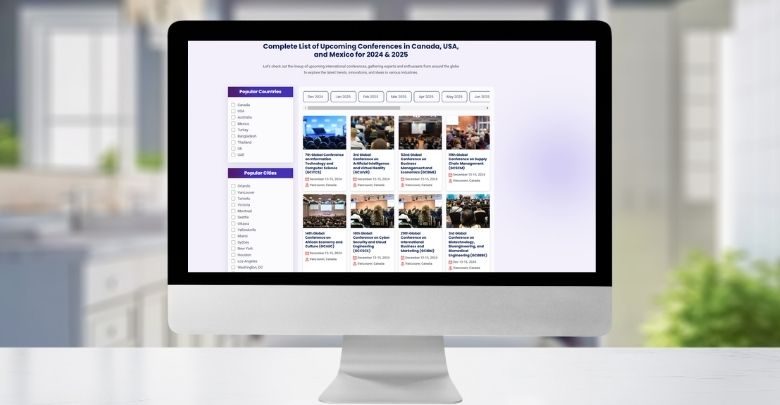Engineering conferences are exciting events where professionals gather to exchange knowledge, explore innovations, and collaborate on future advancements. Whether you’re a professional engineer or just starting, you might find yourself wondering: What happens at an engineering conference?
At an engineering conference, you can expect a variety of activities designed to engage attendees. These typically include keynote speeches from industry leaders, technical sessions on new research and innovations, workshops for hands-on learning, and plenty of networking opportunities.
If you’re curious about the specifics of these events and want to know more about what to expect, read on. We’ll explore details, such as the types of sessions and how to prepare for engineering conferences.
Significance of International Engineering Conferences
International engineering conferences serve as a valuable platform for professionals, researchers, and academics to share new ideas and innovations. These events facilitate collaboration among global experts, enabling the exchange of knowledge and best practices. They also provide an opportunity to address complex challenges and explore emerging trends in the field of engineering.

Attending such conferences enhances professional growth by offering insights into the latest technological advancements. Participants benefit from networking with industry leaders and like-minded peers, building valuable connections for future projects. Moreover, presenting research at these conferences boosts credibility and showcases expertise on an international stage.
Canada has become a hub for hosting significant engineering conferences, attracting professionals from around the globe. Participating in an international engineering conference in Canada provides an excellent opportunity for attendees to engage with diverse perspectives while exploring the latest innovations in a world-class setting.
What Happens at an Engineering Conference?
Engineers can transform their careers by attending engineering conferences. These events are designed to promote learning, collaboration, and professional development. Here’s a detailed explanation of what typically happens at an engineering conference.
Keynote Speeches
Keynote speeches are one of the most anticipated parts of any engineering conference. These talks are usually delivered by industry leaders or experts who provide valuable insights into current trends, emerging technologies, and future directions in engineering.
The keynote addresses are designed to inspire attendees and set the tone for the rest of the event. They often tackle big-picture issues, such as sustainability, innovation, and the impact of engineering on society, while also offering solutions to the challenges faced by the industry.
Technical Sessions
Technical sessions are at the heart of any engineering conference. These sessions often feature detailed presentations on specific topics, from new research findings to innovative solutions for industry problems.
Attendees can expect to hear presentations from experts who provide deep dives into their field of expertise. These sessions are an excellent opportunity to engage with the latest developments in your area of interest. Participants are encouraged to ask questions and take part in discussions to improve their knowledge of the topic.
Workshops and Hands-On Learning
Workshops provide attendees with the opportunity to dive deeper into practical applications of the knowledge shared at the conference. These interactive sessions allow participants to work through real-world scenarios or case studies, often with hands-on activities.
Workshops are designed to help attendees apply theoretical knowledge to practical problems, improving their learning experience. They also encourage networking, as participants often collaborate in small groups, building relationships while working together on problems.
Panel Discussions
Panel discussions feature a group of experts discussing a particular topic. These discussions often involve a moderator who guides the conversation, while panelists share their views on the subject matter. These panels provide a well-rounded perspective on important issues facing the engineering industry. Attendees have the chance to interact with the panelists, ask questions, and contribute their thoughts.
Networking Opportunities
Networking is one of the primary reasons many people attend conferences. These events provide numerous opportunities to meet industry leaders, fellow engineers, researchers, and potential collaborators. Networking opportunities are embedded throughout the event, from dedicated sessions to casual social events.
Exhibitions
Exhibitions are an integral part of many engineering conferences. These are typically areas where companies and organizations showcase their latest products, technologies, and solutions. Attendees can explore the latest innovations in engineering tools and systems, ask questions, and sometimes even test out new products.
Social Events
Social events, such as receptions or dinners, are often part of the conference schedule. These informal gatherings provide an opportunity for attendees to unwind and interact with others outside of the structured conference sessions. Social events offer a more relaxed environment for networking and building relationships.
Closing Remarks
The conference typically ends with closing remarks from the event organizers or key speakers. This part of the conference usually serves as a reflection of the key takeaways from the event. Organizers may also provide a preview of future conferences or mention any follow-up actions. The closing remarks offer a chance for attendees to reflect on what they have learned and how they can apply the new knowledge in their professional lives.
How Do I Apply for an Engineering Conference?
Attending an engineering conference requires a bit of preparation, and the application process is one of the first steps. Here’s how you can apply to attend an engineering conference.
Research Available Conferences
Start by researching upcoming engineering conferences. Look for events that focus on topics relevant to your career or interests. Many conferences have websites with detailed agendas, speaker lists, and application instructions. You can also search online for event directories and databases that list upcoming conferences.
Check the Application Requirements
Before applying, make sure you meet any specific requirements set by the conference organizers. This could include professional qualifications, academic credentials, or industry experience. Some conferences are open to everyone, while others may be more exclusive and require specialized knowledge or expertise.
Complete the Application
Once you find a conference that interests you, fill out the online application form to apply for engineering conference. Be prepared to provide your personal details, professional background, and any other required information. Some conferences may ask for a short bio or a statement of intent explaining why you want to attend.
Submit Payment
Many conferences require an application fee. This fee usually covers the cost of attending the conference, including access to sessions, workshops, and materials. Make sure to check if there are any discounts for early registration or group bookings.
Wait for Confirmation
After submitting your application, wait for confirmation. Some conferences may require additional steps, such as approval of your credentials or a review of your application. Once confirmed, you will receive details about travel, accommodation, and the conference schedule.
Best Way to Prepare for an Engineering Conference
Preparing for an engineering conference is essential for making the most of the event. Here are some practical steps you can take to get ready:
Review the Agenda
Study the conference agenda and identify which sessions, workshops, or speakers you want to attend. This helps you plan your time effectively and ensures you don’t miss out on any important events. It’s a good idea to make a list of your top choices and backup options in case some sessions overlap.
Set Your Goals
Define what you want to achieve from the conference. Whether it’s networking with industry leaders, learning about new technologies, or discovering research trends, having clear goals will keep you focused. Write these goals down and refer to them throughout the conference to ensure you’re making the most of your time.
Pack Essential Materials
Make sure to pack business cards, a notebook, pens, and any promotional materials you may need. Having these items ready will make networking and note-taking much easier. Additionally, bring a portable charger for your devices, as you may need it during long days at the conference.
Prepare Your Elevator Pitch
An elevator pitch is a brief introduction about yourself and your work. Prepare a concise and engaging pitch to share when networking. This preparation will help you make a strong impression on potential connections. Keep it under 60 seconds, highlighting key points such as your current work and career interests.
Dress Professionally
Wear attire that aligns with the conference’s dress code. For most conferences, business casual or formal attire is appropriate. Choose comfortable clothing, as you may be standing or sitting for long periods. Don’t forget comfortable shoes, as you’ll likely be walking around and attending various sessions.
Prepare for Networking
Research who will be attending the conference and identify people you would like to connect with. Be proactive in introducing yourself and exchanging business cards. Networking is one of the most valuable aspects of attending a conference, so make the most of it.
Where Can I Find a Conference on Engineering?
If you’re looking to attend an engineering conference, there are several ways to find the right event. Here are some strategies to help you locate the best events suited to your interests.
Search Online
Use search engines and online conference directories to find upcoming engineering events in different countries. Websites like Eventbrite and specific engineering association pages are good starting points. Many platforms provide filters to narrow down results by location, date, and topic.
Visit Professional Organizations’ Websites
Many engineering associations, like Global Conference Alliance Inc., list upcoming events and conferences on their websites. These organizations often provide valuable resources and networking opportunities for professionals, making them a great source for finding an engineering conference in Canada or other countries.
Network with Colleagues
Ask colleagues, professors, or mentors about conferences they have attended or recommend. Networking within the industry can lead to valuable recommendations. Personal referrals often provide the best insights into the value and quality of conferences.
Subscribe to Newsletters
Sign up for industry newsletters or journals that often announce upcoming conferences. Many conferences also distribute promotional materials via email to interested parties. Staying informed through these channels can help you discover new opportunities.
University Websites
Many universities host engineering conferences or share information about events hosted by others. Check the websites of universities with strong engineering programs for event listings. Universities are also great places to find more specialized or niche engineering conferences.
FAQs About What Happens at an Engineering Conference
We’ve answered some of the most common questions about engineering conferences in our FAQ section. Whether you’re new to attending these events or have attended several, you’ll find helpful information here to guide your experience.
What Types of Sessions Can I Expect at an Engineering Conference?
At an engineering conference, attendees can expect various types of sessions, including keynote speeches, technical presentations, workshops, and panel discussions. Keynote speakers are often industry leaders who share insights on current trends and innovations in engineering.
What Should I Bring to an Engineering Conference?
At an engineering conference, you should bring business cards, a notebook, pens, and any promotional materials if you’re representing a company. Additionally, ensure you have a comfortable and professional outfit for the event.
How Do I Network at an Engineering Conference?
Networking at an engineering conference involves introducing yourself to others, exchanging business cards, and engaging in meaningful conversations. Be proactive in starting conversations and take the opportunity to meet both speakers and fellow attendees.
Can I Present at an Engineering Conference?
Yes, many engineering conferences allow participants to submit abstracts or proposals for presentations. This is a great opportunity for researchers or professionals to showcase their work and share their expertise with a wider audience.
Are Engineering Conferences Only for Professionals?
No, engineering conferences are open to students, academics, and professionals. They provide valuable learning and networking opportunities for people at all levels of their careers. Students can gain exposure to industry trends and research, while professionals can advance their knowledge and make new connections.
Final Thought
The experience of attending an engineering conference offers several opportunities to learn, network, and develop professionally. It’s a chance to engage with experts, explore new technologies, and stay ahead in your field. No matter how experienced you are or how new you are to the engineering sector, these events provide growth opportunities.
So, what happens at an engineering conference? You can expect keynote speeches, technical sessions, hands-on workshops, and plenty of networking opportunities. These events are designed to educate, inspire, and connect professionals, offering a well-rounded experience that can benefit your career and knowledge.







